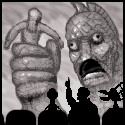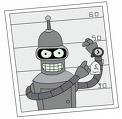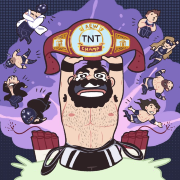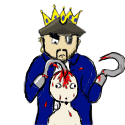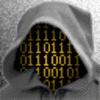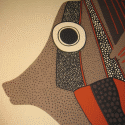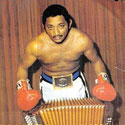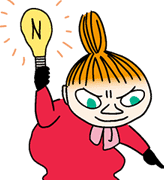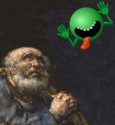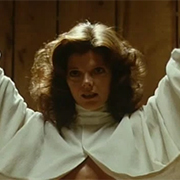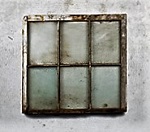|
Just finished Neil Gaiman's American Gods. Now, what o buy next, Stardust, or Neverwhere...
|
|
|
|

|
| # ? May 14, 2024 00:36 |
|
Finally finished Dune Messiah. I read the first half nearly a year ago, lost the book at a blood drive, and never bothered to pick it back up until a few days ago. I'm glad I did, though, because I stopped reading just before it picked up in pace a bit and a bunch of action happened. Overall I enjoyed the book a lot, although it's definitely a bit of a drier read than the original Dune. I'll probably grab the third book of the series soon, although not right away - the ending of this one was pretty clean, so I don't feel the need to immediately dive into the next book and see what happens.
|
|
|
Vertigo posted:Just finished Neil Gaiman's American Gods. Just finished Neverwhere, started American Gods. Neverwhere's very good, but I think you need to be reasonably familiar with London to get a lot of the humour.
|
|
|
|
|
Vertigo posted:Just finished Neil Gaiman's American Gods. I finished Anansi Boys a little while ago and I understand American Gods is pretty similar to it, but Anansi Boys is a bit more lighthearted. I've heard great things about Good Omens so I'm thinking of picking that up next.
|
|
|
|
Just finished Madame Bovary by Gustave Flaubert. It was an interesting read and about what I expected. Is it just me or is there an entire genre of fiction kind of like this book (Madame Bovary, The Awakening, Anna Karenina, etc...) Also finished a rereading of Slaughterhouse Five by Vonnegut. It was even better than I remembered. Such an amazing book, I try to reread it every summer.
|
|
|
|
Just finished "Good Omens" by Neil Gaiman / Terry Pratchett. It's thought provoking and one of the funniest books I have ever read. Highly recommended!
|
|
|
|
I just finished Ishiguro's "Never Let Me Go" - and by god, that was an extremely powerful book - especially in the third part. I like how the title, once again, referred to something that happens in the novel, and yet is also the underlying theme of the book. But I did like the fact that even though all the characters in the book were "special" and "different", Ishiguro tried drat hard to draw us into them, to make them feel like they were just normal people. Lastly, I will admit that the ending chapters did make me weep.
|
|
|
|
Finished Watership Down on the bus this morning. It's been about twenty years since the last time I read it, maybe more. Imagine a grown man on the bus reading a book about bunnies and trying to pretend he's not crying.
|
|
|
|
Transformers: Revenge of the Fallen the movie noveliazation by Alan Dean Foster, or Dean Alan Foster or whatever. I was expecting shlock because it's a movie book, and thus a quick cash-in, but I was still stunned at the horrible writing. I admit I only read it to find out what would happen in the upcoming movie, and I got that much out of it, I guess. Still, that's some lovely writing. Luckily, I followed that up with: The Collected Works of T.S. Spivet by Reif Larson. This is a wonderful book and I recommend it to anyone looking for a new voice in modern fiction. The narrator (T.S. Spivet) is a 12 year old with a compulsive need to "map" everything. He's the son of a Montana rancher and a naturalist and spends most of his time making his maps. The maps are water tables, migration patterns, anatomies of various beetles, etc etc, down to the layout of his room. The gimmick of the book is that all of the maps and illustrations are included alongside the text, which the author did himself, and many of the deeper details of the story are hidden in that marginelia. The narrator's brother has killed himself and the family is trying to cope with it, and meanwhile T.S. has won the Baird prize from the Smithsonian Institute a college professor friend of his mom's had submitted his work in on the sly. The main story is about T.S. making his way from Montana to D.C. and the revelations he has about his family and himself along the way. I can't say enough about this book. It's touching, funny, and smart.
|
|
|
|
Just finished The Company by Robert Littell. Was pretty fascinated by the whole thing and really liked how he fiction with the actual history of the CIA and KGB activities throughout the Cold War. It's got me interested in spy novels so now I've started The Spy Who Came in from the Cold by John Le Carre.
|
|
|
|
Straw Dogs by John Gray. A lot of it is crap, but it offers an interesting perspective that draws from some non- and anti-Western philosophy that I've enjoyed thinking about. Definitely a book with a lot of subjective value, recommended for the open minded. Gonna get a head start on Infinite Summer and pick up Infinite Jest. Again. Hopefully I can get through more than 300 pages this summer.
|
|
|
|
Snowmanatee posted:300 pages actually, and I only point this out because I'm 250 in and it's taking me foreeeever. I guess I don't like nature as much as I thought I did. I've read four books since I started Walden. I did just read that other Glass book (Raise High the Roofbeams, Carpenters/Seymour, an Introduction) and I can only halfheartedly recommend it. The first half (Raise High the Roofbeams) is really enjoyable, funny and easy to read. The second half is just Buddy Glass talking for 120 pages. Just talking. Some of it's interesting, some of it is intolerable, but it's all very weirdly meta. At one point Salinger, in the voice of Buddy Glass, suggests that Buddy is the one who wrote Catcher in the Rye. edit: just saw that Infinite Summer link, I've had a copy of that book sitting on my shelf for the better part of half a year, looks like I'll have some sort of motivation to read it now
|
|
|
|
Harry Potter & the Order of the Phoenix, J.K. Rowling Rowling seems to do a lot better when she's taking her plot seriously, but there was still plenty of the high school drama bullshit in this installment. I'm in the middle of Half Blood Prince right now, and she seems to have left that mostly behind. The Emerald City of Oz by L. Frank Baum This was a real departure, with actual villains and multiple plotlines, for a childrens' book. So far it's the best since the original, and has an ending that's both awesome and hilarious. The Bell Jar by Sylvia Plath The first time I read this, I didn't think there was anything too out of the ordinary about Esther until the almost date rape scene, but now I realize I only thought that because that's what my life was actually like for way too long.
|
|
|
|
Vertigo posted:Just finished Neil Gaiman's American Gods. I would go with his short story collections. He's written some marvelous ones. Just finished Foundation's Edge. It was a fine book, but it really seems to differentiate from the original themes and premise of the Foundation series. I guess that's what happens when an author doesn't want to write a story while the fans are clamoring for it and the publisher puts forward an advance ten times the normal amount. I enjoyed it, but not as a follow up to the Foundation Series. I'm halfway through Foundation and Earth now and after that is a work by GRU defector Viktor Suvorov.
|
|
|
|
The Ghost Map by Steven Johnson - Non-fiction book about the 1854 cholera epidemic in London that eventually led to major improvements in public sanitation in London. Johnson follows the efforts of two men: Dr. John Snow and Reverend Henry Whitehead as they pursued different approaches to dealing with the epidemic and eventually came to work together on preventing future outbreaks. Very well-written and engaging read. 1776 by David McCullough - I liked the HBO miniseries based on McCullough's John Adams so I'd meaning to read some of McCullough's work. 1776 covers a time period starting at the end of 1775 with King George addressing Parliament and ends just after Washington's famous crossing of the Delaware on Christmas night, 1776. McCullough not only chronicles the major engagements that took place during that period, but also takes time to show the conflict through the eyes of Washington, his commanders and various soldiers on both sides, using extensive research in both American and British archives as source material. I'll admit I knew very little about the time period aside from what was covered way back when in school, so it was a very informative and well-written read. Mistress of the Art of Death by Ariana Franklin - Despite the quotes on the back jacket basically calling it a "medieval CSI"  , this actually was a good read. It takes place in 12th-century Cambridge where a string of child murders has been blamed on the local Jews. A female doctor from the famous medical school at Salerno, Italy is sent to investigate and uses her training to examine the bodies as part of the investigation, while being forced to conceal her role due to the prejudices of the time. Great historical detail and solid characterization and writing keeps it interesting throughout. , this actually was a good read. It takes place in 12th-century Cambridge where a string of child murders has been blamed on the local Jews. A female doctor from the famous medical school at Salerno, Italy is sent to investigate and uses her training to examine the bodies as part of the investigation, while being forced to conceal her role due to the prejudices of the time. Great historical detail and solid characterization and writing keeps it interesting throughout.Finally, just finished Faulkner's As I Lay Dying earlier today. The stream of consciousness style took some getting used to, but all in all I found it to be a pretty engaging read. I'll definitely have to re-read it in order to get a better handle on certain parts, though. For anyone who's read The Sound and the Fury - how's that compare to AILD? I've heard it can be a difficult read also due to the stream of consciousness style.
|
|
|
|
Encryptic posted:Finally, just finished Faulkner's As I Lay Dying earlier today. The stream of consciousness style took some getting used to, but all in all I found it to be a pretty engaging read. I'll definitely have to re-read it in order to get a better handle on certain parts, though. For anyone who's read The Sound and the Fury - how's that compare to AILD? I've heard it can be a difficult read also due to the stream of consciousness style. I really hated As I Lay Dying until I was forced to write a research paper about it. I would certainly suggest reading it again and potentially reading some supplementary material like cliffs notes when you are done to fully appreciate the story. I can wholeheartedly say that upon further study it's one of my favourite books. I found The Sound and the Fury to be a much harder read but overall more interesting. It's hard to start because the first part is stream of consciousness narration from a character that is mentally retarded. If you can get through that section the rest of the book is easier. Most Faulkner really requires a study group or supplementary reading material to fully appreciate it IMO.
|
|
|
|
A Gun for Sale by Graham Greene. A very quick 2 day read; it's an earlier Greene novel so it's not up to par with masterpieces like The End of the Affair but it's still impressive for what Greene can do with a pretty basic pursuit plot. I'm always amazed with how realistic his dialogue is.
|
|
|
|
Ghotli posted:I really hated As I Lay Dying until I was forced to write a research paper about it. I would certainly suggest reading it again and potentially reading some supplementary material like cliffs notes when you are done to fully appreciate the story. I can wholeheartedly say that upon further study it's one of my favourite books. This sounds like good advice. I first read it as part of an American Literature class and I can definitely imagine not appreciating it as much as I do if I had read it on my own without any lectures/study.
|
|
|
|
I recently finished Adventures of Huckleberry Finn. I thought it was a great book, but it was very complicated.
|
|
|
|
Ndsfreak posted:I recently finished Adventures of Huckleberry Finn. I thought it was a great book, but it was very complicated.
|
|
|
|
I started 2666 and just finished it a few minutes ago. I took a break and read another book in between the first four parts, but by "The Part About the Crimes" I was completely enthralled and just tore through "The Part About Archimboldi" in a couple of hours. 2666 is one of those rare books that I feel not only completely lives up to its hype but transcends it-- the last few books I can think of that were built up like this (Oscar Wao, White Teeth, Netherlands etc) were all outstanding in their way, but this book is the kind of work that people will be taking seminars on thirty years from now. The last work of this magnitude I can come up with would probably be Infinite Jest. Anyway, in the midst of reading 2666, here's whatever else occupied my time: Love Lessons: Selected Poems of Alda Merini-- don't be put off by the frankly rather silly title, this is a great little book. Susan Stewart does a terrific job of translating from the Italian, making every poem simultaneously sharp and dreamy, crisp and ephemeral. In terms of both the poetry itself and the quality of the translation, I'd compare it to Steven Mitchell's work with Rilke. The Partly Cloudy Patriot by Sarah Vowell. Cute, occasionally pretty funny, but definitely fluff. Vowell has much more charm and presence as a speaker than as a writer. The Man Who Mistook his Wife for a Hat by Oliver Sacks. This is the earliest Sacks I've read and the tone is noticeably more clinical, almost as if he's writing for a more informed audience. While I sort of appreciated the lack of occasionally over-the-top sentimentality of his later stuff (which I had never even noticed until I compared it to this earlier style), I also felt like some of his information was going over my head, especially his frequent references to the neurological canon-- which, fascinating as it sounds, I am pretty sure I will never, ever get around to reading. On the Pleasures of Hating by William Hazlitt. I read the profile on Hazlitt that ran in the New Yorker a few weeks ago so I decided to reread some of his essays. I don't know what to say-- they're still good, prescient and witty and powerful. I was in the middle of "What is the People?" when I heard about Prop 8 passing, and the resonance was thought-provoking and chilling.
|
|
|
|
Band of Brothers by Stephen E. Ambrose - A great book, it seamlessly blends anecdotal stories of the war with historical fact. It contains every single scene from the mini-series and much more. Highly reccomended for anyone interested in the Western Front in WW2.
|
|
|
|
Rosemary's Baby by Ira Levin. I've recently discovered great enjoyment reading horror fiction and this is a title that, I think, holds a prominent place in the popular culture, so I've been meaning to read it for a while. It pulled me in strongly from the very beginning by focusing on trivial details and commonplace events; Levin creates immediately recognizable characters and establishes a fascinating momentum with his story telling. (He does great dialog too. I hadn't really heard of Levin before, but I was suprised on looking up how many of his titles are very well known.) The fantastic aspects creep in slowly and, if it weren't for the pop culture awareness of the book's story, it might've been easy to dismiss most of what happens as coincidence. I find this the most effective way of building suspense and would liken it to a great personal favorite: The Haunting of Hill House by Shirley Jackson as another (even better) example of keen, subtle, slow-building psychological horror. As is often the case I can't help but wonder how the rising action would have struck me if I hadn't had some foreknowledge of the storyline. The setting -- an upscale apartment building in 1965/6 New York and the exploits of a young married couple is downright comforting in its familiarity -- about halfway through I was struck by the notion that Rosemary's Baby plays exactly like an episode of I Love Lucy if Fred and Ethel had been Satin worshippers -- which, of course, only helps heighten the suspense.
|
|
|
|
I finished Sean Williams' The Resurrected Man, a sci-fi mystery concerning the possible nefarious purposes teleportation could be put to. The central conceit of the book is the question of whether the same person steps out of a teleportation unit, or if the technology is a 'murdering twinmaker'. The book succeeds as an exploration of this theme and speculation on identity and societal ramifications of teleportation, and partly succeeds as a mystery. The mystery falls apart in the last act, as certain plot aspects are introduced seemingly because that's when the author needed them to occur, and the whodunit is not surprising (although the howdunit and whydunit are interesting enough), almost as if the main characters were deliberately blind to who the villain was. The first couple of chapters are particularly visceral and disorienting, but things get bogged down with a lot of tail chasing. On the tech side, Williams offers some disturbing ideas, like "smoothing functions" which basically are like the difference between lossy vs lossless compression, except you're talking about people vs a Justin Timberlake MP3. It's a relatively early book by this author, and worth checking out, even with the caveats mentioned.
|
|
|
|
I just finished Look to Windward by Iain M. Banks. I loved it as it was essentially just a few hundred pages of the wildest sci-fi imagination going. Every new chapter was like another slice of the imagination cake had been cut and passed to me for tasting. Just fantastic. Although I know alot of people who hated it. I'm reading Matter now and sadly it's not up to the stupidly high creative levels of Windward, but seems to be picking up now 10 or so chapters in.
|
|
|
|
Ghotli posted:I really hated As I Lay Dying until I was forced to write a research paper about it. I would certainly suggest reading it again and potentially reading some supplementary material like cliffs notes when you are done to fully appreciate the story. I can wholeheartedly say that upon further study it's one of my favourite books. Thanks, I can definitely see the benefit of supplementary material here. I'll keep it in mind when I get around to tackling Sound and the Fury.
|
|
|
|
Chapterhouse: Dune, thus finishing an on-and-off several month long campaign of reading all six Dune books by Frank Herbert. There are no more Dune books
|
|
|
|
Cruddy, by Lynda Barry. It was entertaining, and kept me reading despite how weird the story was. Although, the ending was a bit confusing for me. My boyfriend and I were both sort of reading the book at the same time (he finished first) and we both had different interpretations on the ending. I thought that the added paragraph at the end was written by Roberta's sister, Julie as a demand to know where she was. But then my boyfriend brought up the idea that it was written by Vicky, who might have gotten the book at the place they were supposed to meet (meaning that for some reason, Roberta was not there while her stuff was). So either she died like she said she was going to, and Julie wrote the last paragraph, or something completely different happened, and the paragraph was from Vicky. Any thoughts?
|
|
|
|
Catch a Wave: The Rise, Fall & Redemption of the Beach Boys' Brian Wilson by Peter J. Carlin I am a huge Brian Wilson fan. That said, this book provided hitherto unknown insight into both the man and his artistic ambitions and successes (where they did pan out). This book managed to frame the life of in compassionate terms without falling into the too-easy trap of hagiography. Carlin's assessment of Brian Wilson as a so-called music genius, including his famous scrapping of Smile in 1967 and subsequent withdrawal from the Beach Boys, is almost heartbreaking. There isn't even any unfair mudslinging at other group members or entourages in the Beach Boys' camp! I would recommend this book if you've got a real interest in Brian Wilson (shocking, I know!) and would like to see how his developed as an artist and a person, both for better and worse.
|
|
|
|
csammis posted:Chapterhouse: Dune, thus finishing an on-and-off several month long campaign of reading all six Dune books by Frank Herbert. There are no more Dune books Was it any good? I loved the trilogy but never read any of the later ones. I nearly picked up God Emperor the other day. Would you recommend it? I've just finished Before They Are Hanged, the second in The Blade Itself series by Joe Abercrombie. It wasn't anything fancy or highbrow, but like the first one, its got a gripping plot, some great characters who you get to see growing over the course of the story and some stellar dialogue. This is the first fantasy series I've read that has made me laugh hard all the way through without intending to be purely comedic. Best of all, unlike a lot of popular fantasy, the line between good and evil is so blurred that you're never certain of who you should be rooting for!
|
|
|
|
The Road, finally. For a book so full of despair and bleakness I felt the ending was a little grafted on, but it's still an amazing piece of post-apocalyptic literature and a terse culmination of McCarthy's downer themes. And I thought No Country for Old Men was depressing... Anyway, I still need to finish listening to Shutter Island and reading Sharp Objects, which is shaping up to be a great pulp thriller, even if Gillian Flynn's obsession with childhood sexuality is a tad disturbing. Sorry, Gillian, but I don't think your female protag would masturbate after seeing porno for the first time, hung on the walls of a makeshift slaughterhouse...even if she is a journalist (because we all know journalists are weird).
|
|
|
|
Your Inner Fish by Neil Shubin. I've been on kind of a science writing kick lately, I guess. This one is about the evolutionary basis of all sorts of different features of the human body-- some of the coolest involved the gill plates in embryos. Although Shubin isn't the greatest prose stylist he writes with a really winning enthusiasm, and never gets so carried away that a lay audience feels lost. In fact, I occasionally had the opposite problem-- the learning curve is so gentle at first that readers with even a rudimentary knowledge of biology might get a bit bored.
|
|
|
|
Newjack: Guarding Sing Sing by Ted Conover. Conover is a journalist, and was denied access when trying to interview and do research on Sing Sing, so he went ahead and became a prison guard for a whole year. Very interesting book that goes through the entire history of Sing Sing, the training process that new guards would go through, as well as just the day-to-day chaos of prison life.
|
|
|
|
I just finished Slaughter House Five. I really didn't know much about it before I read it and thought is was a serious tale of the Dresden bombing. I was surprised that is was light-hearted is a sad sort of way. Very good read.
|
|
|
|
Godel, Escher and Bach, one of my favorite "computer theory" books out there, it mixes science with science-fiction, riddles and Lewis Carrol prose to develop questions about humans and computation theory. Not much of a light read and it took me a good while to actually finish. I would recommend it to anybody who is interested in information theory, artificial intelligence or cognitive science. Now onto The Road
|
|
|
|
All the Pretty Horses by Cormac McCarthy. Really enjoyed it - partly because with this one you're able to enjoy his amazing prose without being terminally bummed out (thankyou, The Road) or distracted by the violence (Blood Meridian, which I must re-read one day). I have the three Border Trilogy books in one volume, so onto The Crossing next.
|
|
|
|
Just finished Bryson's A Walk in the Woods. Very entertaining even though it is kind of a cop-out. Bryson has a light style that is easy to read. I may pick up some more of his stuff. Edit: I just realized that I finished 3 books in 3 days. I'll go play some video games now to make up for it. Luna fucked around with this message at 04:58 on Jun 3, 2009 |
|
|
|
The Good Guy by Dean Koontz. I hadn't read any of his books in a few years, but I remembered Odd Thomas being pretty decent and the plot for this one seemed somewhat interesting so I picked it up. I must say, for a guy who's written so many novels, Koontz isn't a great author. His style is pretty lacking in a few different ares, so at first the book seemed a bit amateurish in general. Luckily, the plot was decent enough and it ended up working as a quick, easy read. I wouldn't recommend this to someone who wanted a complex or amazing book, but if you're looking for a quick action-novel to pass the time, this works pretty well.
|
|
|
|
Kusamakura by Natsume Soseki. It's a poetic novel about an artist who travels to a small Japanese town in the mountains in order to create the perfect poem or painting. It's an interesting, almost surreal image of early 20th century rural Japan.
|
|
|
|

|
| # ? May 14, 2024 00:36 |
|
Fatelessness by Imre Kertesz, a semi-autobiographical book about a young boy in a concentration camp. I gotta say I didn't like the style at all. The author's run-on sentences are so ridiculous that on average there'll be maybe 4 or 5 periods per page, but that's my biggest complaint. Once you get used to that it's a decent read, but I can't help but think it received the nobel prize because of the subject matter rather than the prose. For me, quality of the writing is the most important part of a book. It picks up after maybe a hundred pages and then there's a special moment near the very end that ties the story together and hits you over the head with the message, and for a few pages it feels like a completely different (and much better) book. I gave this four outta five stars on my shelfari~ Now I'm going to try and finish The Tin Drum again.. Porky_Oboe posted:Was it any good? I loved the trilogy but never read any of the later ones. I nearly picked up God Emperor the other day. Would you recommend it? If I were to rank the dune books in order from best to worst, I'd say it goes Chapterhouse, Heretics, God Emperor, Dune, Children and then Messiah. A lot of people will probably disagree with me on that though - The last three books seem to be hate it or love it. I think you really should have read the Dune series in high school at the latest, but give it a shot anyway, and yes, stay the hell away from the prequels. Mata fucked around with this message at 20:19 on Jun 3, 2009 |
|
|



